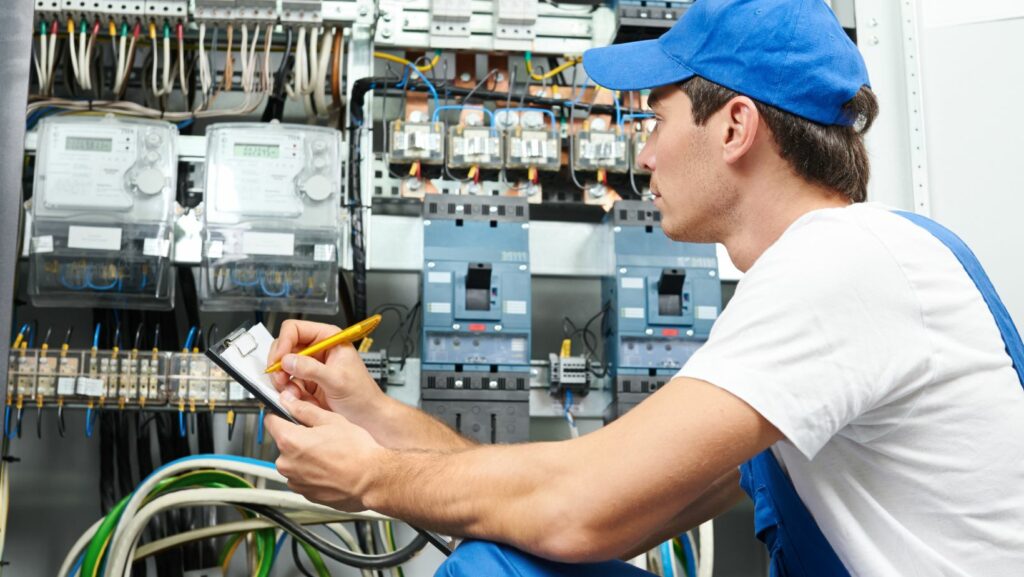
Effective electrical systems are vital for the smooth functioning of any environment, whether residential, commercial, or industrial. Ensuring their safety and reliability requires more than occasional checks; it demands regular, thorough inspections by the team for comprehensive Electrical Repair Services in Vancouver. We will explore the significance of these inspections in preventing hazards, optimizing efficiency, and maintaining compliance with safety standards.
Identifying Potential Hazards
Electrical systems can develop various issues that compromise safety over time. Faulty wiring, overloaded circuits, and deteriorating components are common culprits that can lead to electrical fires or equipment failures. Regular inspections serve as proactive measures to identify these hazards before they escalate. Inspectors meticulously examine wiring integrity, check for overheating, and assess the condition of circuit breakers to address potential risks preemptively.
Ensuring Regulatory Compliance
In many regions, adherence to electrical safety regulations isn’t just recommended—it’s mandatory. Regular inspections are essential for ensuring compliance with local and national codes, which are designed to safeguard occupants, workers, and properties from electrical hazards. Inspections verify that installations meet current standards and that any modifications or upgrades maintain compliance, thereby mitigating legal liabilities and potential fines.
Enhancing Operational Efficiency
Efficiency in electrical systems is about more than just performance; it also impacts operational costs. Inspections help optimize efficiency by identifying inefficiencies such as energy wastage due to poor insulation or outdated equipment. By pinpointing areas for improvement, inspections enable businesses and homeowners alike to make informed decisions about upgrades or maintenance that can lead to significant long-term cost savings.
Extending Equipment Lifespan
Electrical equipment, from transformers to appliances, functions optimally when appropriately maintained. Regular inspections play a crucial role in extending the lifespan of such equipment.

By identifying and rectifying issues early, inspections prevent premature wear and tear, reducing the likelihood of costly replacements. This proactive approach saves money and minimizes downtime due to unexpected equipment failures.
Enhancing Safety Culture
Beyond compliance and operational benefits, routine electrical inspections foster a safety culture within organizations and communities. By prioritizing regular inspections, stakeholders demonstrate a commitment to protecting the well-being of occupants and employees. This proactive stance encourages awareness of electrical hazards and promotes responsible practices among personnel, thereby reducing accidents and fostering a safer environment overall.
Facilitating Early Detection and Maintenance
Early detection is critical to preventing minor electrical issues from escalating into major problems. Regular inspections facilitate early detection by uncovering issues such as loose connections, corrosion, or signs of overheating. Addressing these issues promptly through scheduled maintenance prevents potential hazards and reduces the likelihood of costly repairs down the line. This proactive approach ensures that electrical systems remain reliable and safe, minimizing disruptions to daily operations or residential living.
Adapting to Technological Advancements
The landscape of electrical systems continues to evolve with technological advancements. From smart home devices to energy-efficient solutions, modern electrical installations are becoming increasingly complex. Regular inspections ensure that these advanced systems are installed and maintained correctly. Inspectors verify the compatibility of new technologies with existing infrastructure, assess cybersecurity measures for connected devices, and ensure that installations adhere to emerging industry standards. This adaptability helps future-proof electrical systems against technological obsolescence and enhances their reliability and performance.
Promoting Environmental Responsibility
Beyond safety and efficiency, regular electrical inspections contribute to environmental responsibility. Energy consumption and environmental impact are significant considerations in today’s conscientious society. Inspections help identify opportunities for reducing energy consumption through upgrades to energy-efficient lighting, appliances, and power management systems. By optimizing energy usage and minimizing wastage, inspections support sustainability goals, reduce carbon footprints, and contribute to a cleaner, greener environment for future generations.
Supporting Insurance Requirements
Insurance providers often require proof of regular electrical inspections to validate coverage for both residential and commercial properties. Inspections provide documented evidence that electrical systems are well-maintained and compliant with safety standards. This documentation can be crucial in an electrical damage or fire claim.

By fulfilling insurance requirements through regular inspections, property owners protect their investments and ensure they have the necessary coverage to mitigate financial risks associated with potential electrical incidents.
Educating and Empowering Property Owners
Regular electrical inspections also serve an educational purpose, empowering property owners with knowledge about their electrical systems. Inspectors can provide insights into energy-saving practices, maintenance tips, and recommended upgrades based on the property’s specific needs. This educational component helps property owners make informed decisions regarding investments in electrical infrastructure, enhancing their properties’ overall value and safety over time. By fostering a proactive approach to electrical maintenance, inspections empower property owners to take control of their electrical systems’ performance and longevity.
The importance of regular electrical inspections cannot be overstated. These inspections are proactive measures to identify potential hazards, ensure compliance with safety regulations, optimize operational efficiency, extend equipment lifespan, and enhance safety cultures. By investing in routine inspections conducted by qualified professionals, individuals and organizations alike can safeguard against electrical risks, minimize downtime, and ultimately contribute to a safer and more efficient environment for all.



